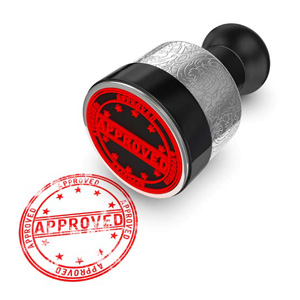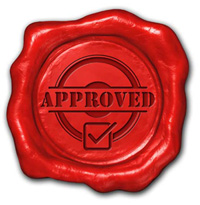We examine the scope of the EQM certification and its implications for the whole HVAC industry.
Emirates Authority for Standardization & Metrology (ESMA) issues two types of certificates: ECAS (Emirates Conformity Assessment Scheme), which is mandatory and was enforced at the beginning of the year, and EQM (Emirates Quality Mark), which is a distinction mark granted to a certain product to prove that it meets government-approved standards. We examine the scope of the EQM certification and its implications for the whole HVAC industry. By Valeria Camerino
The introduction of the ECAS and EQM standards has been welcomed by the UAE’s HVACR industry as a huge step forward, as it is expected to significantly improve market transparency, promote fair competition and, last but not least, reassure customers about product quality and safety.
“ECAS is a huge development, because it provides transparency and a level playing field for the industry, and it empowers the customers,” Zakir Ahmed, Managing Director at NIA Limited said.
 “Local brands have no norms and standards dictating to them, and so some of them label 18,000 BTU as 24,000 BTU. So, you– the customer pays for 24,000 BTU, when it is only 18,000 BTU. With the ECAS energy label, all the bad practices will be blocked.”
“Local brands have no norms and standards dictating to them, and so some of them label 18,000 BTU as 24,000 BTU. So, you– the customer pays for 24,000 BTU, when it is only 18,000 BTU. With the ECAS energy label, all the bad practices will be blocked.”
Indeed, the new label will clearly state the capacity of the system and the amount of power the system will consume in a year.
Mohamed Saleh Badri, ESMA Acting Director General explained that, as a national standards body, the organisation also established standards for the HVACR industry, initially focusing on safety and then addressing energy efficiency.
“Energy use is a matter of concern for the UAE government,” Badri pointed out. “So it is a national interest to go for energy efficiency. That’s why green buildings and mass transportation are important. Reducing our energy consumption will also keep a check on carbon emissions.”
As he observed, about 70% of a building’s total energy consumption is due to air conditioning. “It is not enough that the equipment is in good condition at the time of installation; if maintenance is poor, if the filters are not regularly cleaned, it will impact energy use by 6-7%.”
He was echoed by Mohammad Al Mulla, ESMA Director of Metrology Department and Acting Director of Standards Department.
Al Mulla said that the main reason why the UAE has one of the largest ecological footprints in the world is people’s behaviour.
“Commissioning of buildings is important,” he said. “It is important to locate outdoor units in the shade. Cleaning of filters is important. Also, it is important that the air conditioner is at the right temperature setting to minimise energy consumption and that we view the entire air conditioning system and not just the individual components. And you have to educate people, and that comes with time.”
In developing the UAE standards, ESMA adopts international standards, particularly the International Electrotechnical Commission (IEC) standards for electrical equipment and appliances.
However, Badri warned, “having standards, though, is not enough; somebody should enforce them.”
He added: “We are now issuing laws and regulations on how to implement them. And we will monitor the implementation. We will work with different local governments, which will implement them. We will not implement the standards; others will.”
As Khaled Abdulmajeed, Standard Engineer at ESMA explained, the purpose of a certification system is to give people the confidence that the products available on the local market have government approval, are safe to use and are of the highest quality. The standards body issues two types of certificates. One, Emirates Conformity Assessment Scheme (ECAS), is mandatory and the other, Emirates Quality Mark (EQM), is voluntary.
“We implemented ECAS in 2010 for 15 product categories. One of those products is air conditioning systems, because air conditioning systems are widely used here, owing to the high ambient [temperature] conditions,” he said.
“The second, EQM, is awarded to factories to certify that the factory in question has a good system to control the safety and quality of the product.”
Abdulmajeed claimed that the assessment process for a company to be awarded the EQM label is very strict, as the company applying for this certification must have a good quality management system in place and good quality control systems in its production line, a good quality plan for product testing and inspection, as well as a suitable facility to test the products.
“So, auditors, when they go to any factories, will assess all these points,” he explained. “And if the factory does not have non-conforming elements, ESMA auditors will recommend EQM for three years.”
To date, the brands that have been granted EQM include Gree, Carrier, Mitsubishi Electric, O General, LG and Al Essa (for window ACs only). Midea and Zamil are in the process of obtaining the certification.
Ahmed from NIA, the regional distributor of Gree products, explained why the company decided to apply for EQM. “Every product imported into the UAE requires ESMA approval for quality and safety as per ESMA General Rules for Emirates Product Certification Scheme. EQM gives blanket approval for all the products manufactured by the company that are granted the ‘Certificate of Conformity’.”
“Secondly,” he added, “it gives assurance to the end users that the brand that bears the EQM logo meets the highest standard for quality and performance.”
Unlike ECAS, Ahmed pointed out, the EQM programme is a full risk assessment process, which involves a number of manufacturing and surveillance visits.
 To apply for EQM, NIA, which was officially awarded the certification on December 25, 2011, had to pay the required fees after the scrutiny of the following documents:
To apply for EQM, NIA, which was officially awarded the certification on December 25, 2011, had to pay the required fees after the scrutiny of the following documents:
The above process was followed by the visit of three inspectors who assessed the company’s lab and testing facilities, the factory and manufacturing process and the quality management during a three-day factory inspection.
Gree factory’s strong points [include] the way of controlling the product and the number of testing rooms,” ESMA’s Abdulmajeed said. “They have a very good control system and one of the best facilities for testing I have ever seen. They have qualified personnel.”
NIA’s Ahmed believes that applying for EQM was very important to give credibility to the brand and guarantee quality assurance, giving complete peace of mind to consumers.
“Government institutions are pleased as it eliminates quality inspection from their side,” Ahmed acknowledged.
“Private businesses take it at face value. We are yet to test the reaction of individual customers as it is off season for air conditioners.”
Didier Hardouin, General Manager at UTS Carrier, pointed out that the company decided to apply for this certification to meet the quality standards set by ESMA.”We appreciate and support ESMA’s initiatives and drives that ensure only the safest and efficient air conditioning equipment is available for the consumers here in the UAE,” Hardouin said.
The company, which was granted the EQM label for its SAMCO products in November 2010, went through a number of steps required to obtain the certification.
These included the application process, the assessment of the factory by ESMA auditors for a week, conformity remarks by ESMA, Carrier’s action plan for ESMA remarks and finally, the award of EQM.
Furthermore, in order to obtain the certification, the products had to meet IEC 60335-2-40 safety standard and ISO9001 quality standard.
Customer response was extremely positive, according to Carrier, as the EQM label reassured them that the company comply with regional standards and manufacture products that qualify as per ESMA safety standards.
As mentioned earlier, ESMA is a member of the International Electrotechnical Commission (IEC), and its certifications are recognised in other countries, including the GCC.
Furthermore, the standards body is currently working on a GCC-wide certification. “At present, we are preparing a draft and will be implementing it by 2014, I hope,” Abdulmajeed said.
Commenting on the initiative, Ramzi Abu-Ghanem, Carrier UTS Residential Products Business Unit Manger said: “We do support a GCC-wide regulation/standard, provided it is for the whole market and not just region-specific.”
He added that the company believes in providing quality, reliable and efficient products manufactured in compliance with standards that both the consumer and the market could benefit from and expects all air conditioning suppliers to adopt a similar approach.
NIA’s Ahmed pointed out that the GCC market is fraught with products supplied with dubious specifications and substandard quality due to lack of regulation. Therefore, the introduction of regional standards would improve product quality and guarantee fair competition.
“This exercise fixes a certain base line of quality for all manufacturers and makes competition fair and equitable for all parties,” he said. “With the GCC customs union, goods can flow across borders unhindered. Therefore, it’s best that all adherents to the union comply with a common standard.”
Copyright © 2006-2025 - CPI Industry. All rights reserved.